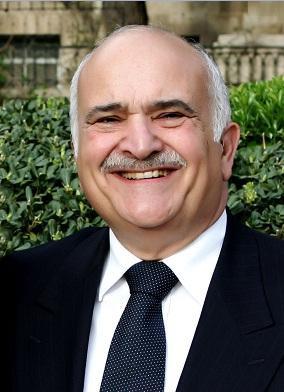Sep 21,2020

AMMAN — HRH Prince Hassan, chairman of the Higher Council for Science and Technology, has called for formulating a “realistic proposal” that includes the implementation of a feasibility study over the interconnection between water, energy and food in the Arab region.
In a keynote address at a recent regional symposium on the use of nuclear energy to bring about sustainable development, Prince Hassan underlined the importance of embarking on a strategic approach that gives traction for socioeconomic development in the Levant and the larger Arab region.
His Royal Highness emphasised the need to develop trans-boundary solutions and plans away from politics, and to identify water, energy and environmental priorities, saying the Arab region has human talents capable of putting such solutions into action, the Jordan News Agency, Petra, reported.
The virtual symposium, titled “The Role of Regional Cooperation in Achieving Sustainable Development Using Nuclear Energy: Integrated Planning for the Water, Energy and Food Nexus in the Arab Region”, was organised by the Jordan Atomic Energy Commission and was attended by HRH Princess Sumaya, president of the Royal Scientific Society, and other participants.
Prince Hassan stressed that Arab countries are required to start planning to meet the local national dimension, noting that climate change is the Arab region and the world’s most eminent issue.
“Carbon dioxide emissions must be slashed to limit global warming,” Prince Hassan stated, warning that the aftermath would “lead to widespread famines and epidemics as a result of the rise in ocean levels and the increase in desertification, to which our Arab region will be more vulnerable compared with others”.
His Royal Highness continued with how the world is gradually replacing its heavy dependence on fossil fuel, and that the Arab region “must switch to other alternatives, particularly renewable energy represented by solar energy”.
In this regard, Prince Hassan referred to “Desertec”, a mega project which was aimed at generating electricity from solar power in the Sahara Desert and transmit it from north African Arab nations to the Arab countries in the east.
He then steered to nuclear power, stating that “we must focus on how to handle spent fuel and protect the environment if the region decides to pursue nuclear energy for power production”, calling on the participants to come up with creative solutions after a proper diagnosis of the challenges and problems facing the Arab region in the water, energy and food nexus.
The prince called for forging partnerships between the countries of the Arab region and switch the focus from the national dimension to the regional dimension in order to effectively address climate change, saying that “no country in the region is capable of facing this challenge on its own, especially if we add the environmental dimension to the water, energy and food nexus”.
Furthermore, he underscored the importance of maximising the contribution of international bodies such as the International Atomic Energy Agency in the Arab region and benefitting from the agency’s success in the East Asia and Pacific region.
Chairman of the Jordan Atomic Energy Commission Khaled Toukan highlighted the key role of nuclear energy in the water-energy-food nexus, noting that the region’s demand for both energy and water is rising due to economic and population growth, and consumption patterns.
He said that nuclear power reactors can be considered as a long-term alternative for power generation and water desalination, and a guarantee against future fluctuations in oil and natural gas prices.
Toukan further added that nuclear power is an important component in any low-carbon energy strategy, noting that nuclear applications can give a major push to smart agriculture.
